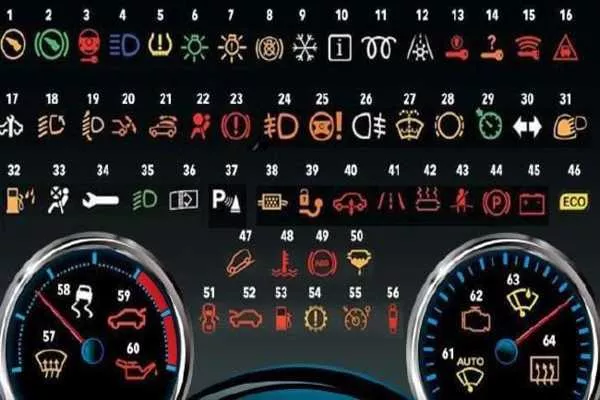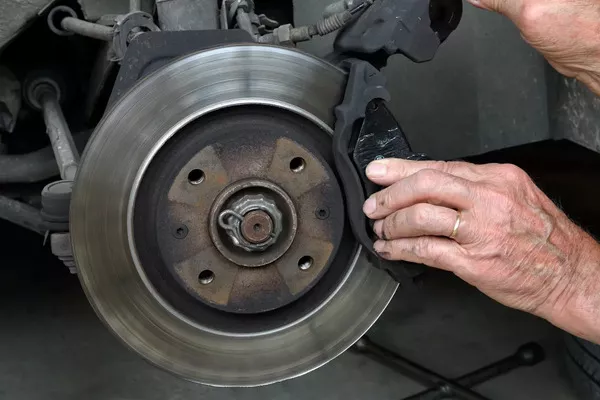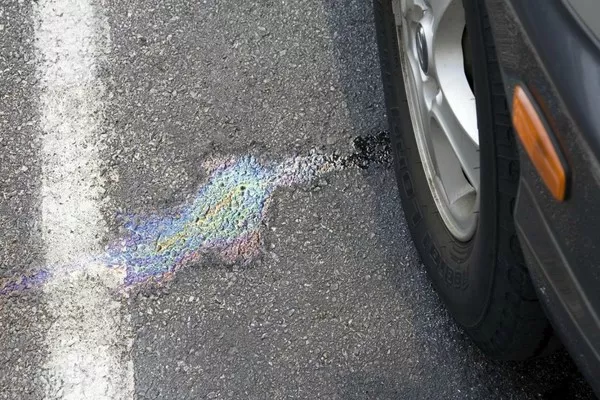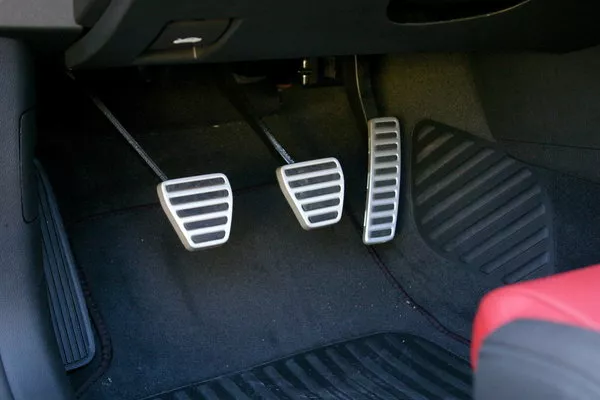They say that the brakes are the most important part of a car - that you're better off without the gas pedal rather than the brakes. This simply implies the importance of keeping your brakes in good shape. The better they are in condition, the safer you are in every drive.
However, there are times when they don't seem to work as effectively as they should be; check out these signs brought to you by Philkotse.com. If you experience some or all of the things listed here then take your ride to the auto shop immediately; you can thank us later.
1. Warning lights on the Dashboard
If there's something wrong with your car's brakes, your car is bound to detect it too. Take notice of the dashboard lights and what they indicate. If you're unsure of whether the icon you're looking at is the right one, know that the light should be yellow or red.
Older car models may not have this feature but contemporary models are equipped with smart tech nowadays to alert the user of any problems with the car that can arise. If you're still unsure about the icons and indicators on your dashboard, read your car's respective manual. This should tell you everything about you need to know about basic car warning signs.

Take notice of the dashboard lights and what they indicate.
2. High-pitch sound
If something is wrong with your car's brakes, then try pressing against them while you're taking one of your usual drives and observe. If there's a high pitched, squeaking noise that seems to come from your brakes then that may complete your thoughts regarding a brake inspection.
When this sound starts being generated by your car's brakes, it means that the pads are wearing thin. The metal is now touching the metal rotor and any more rubbing and friction will cause rotor damage. The word "damage" and "car" really don't get along so well and often ends up with requiring quite an amount of money.
3 Noises Your Brakes Should Not Be Making
3. Daily Grinding action in the brakes
If you feel a grinding feeling in the pedal as you press the brakes then that could also be a sign; but then again, it could also signal a bunch of other things that could be wrong with your car. It could just be a plain case of gravel or pebbles stuck in your car's caliper unit. However, if you know that it's been quite sometime after your last visit to the mechanic for brake servicing, then you might need to consider the brakes as the focus of your problem.
Grinding action in the brakes is like a level two hazard as it can mean that the metal is already grooving against the brake rotors. This is opposed to the squeaking noise that serves as a warning already. If your car is built with rear drum brakes, then you might want to get that checked too.
In most cases, it just needs a few drops of lubricant and it should be A-ok again. A component in the rear drum called the brake shoe could be rubbing against the car's contact points because of too much rust accumulated.
>>> Related: Car pulling to one side when braking: 6 possible causes

If you feel a grinding feeling in the pedal as you press the brakes then that could also be a sign
4. Shaking and Vibrations
Have you ever driven your car and tried to put it to a halt and noticed that it was somehow giving off a shaky vibe? If you fail to determine where this is coming from, then we bet you that it's because your vehicle's rotors are uneven.
The rotor is a big, disc-shaped metal plate that you can find snugly sitting inside your car's wheel. Whenever you attempt to stop or slow down your vehicle, the brake pedals pushes the brake pads to make contact with the rotors. This successfully slows down the vehicle smoothly without noise or unnecessary motion. If you want to keep it this way, it's best to make sure that the rotors and the brake pads are evenly thick.
5. Leaks from the brake systems
You may wake up one day and may suddenly realize that the brake is softer than usual. Take this as a serious precaution and don't hesitate to bring your vehicle to the mechanic as soon as you can. If you weren't able to spot a leak that could come from the brakes then your trusted mechanic could take a look into that for you. Leaks that could come from the brake system is most likely to drip from the master cylinder but it could also develop from other components of the system.
This is very important since the master cylinder is responsible for creating the power that your car needs every time you step on the pedal brake. It comes with a small container that contains the brake fluid. When you push against the pedal, it lunges the brake fluid from the master cylinder and into the thin tubes and creates a strong pressure.
This pressure should be strong enough for the brake pads to clamp the rotors hard enough to slow down and eventually stop the rotation of the wheel. If there's a leak in the brake's controlled system, this may reduce the effect of the braking power and can even diminish the ability of the brake pads to totally hug the rotor.
>>> Related: Never ignore these 3 common symptoms of low brake fluid

Leaks that could come from the brake system is most likely to drip from the master cylinder.
6. Difficulty when stepping the pedal
Are you familiar with what type of brake your car has? Is it a power brake or a manual? Do you know how much your feet should sink into the brake pedal to achieve a total stop? Regardless of what type of brake your car has, you shouldn't have to step on to your pedal too hard that it reaches all the way to the surface of your floor mat.
Know that for a manual brake system, the vehicle should be at a complete halt once your brake pedal is at 3 inches above your flat floor mat. The power brakes, on the other hand, should be at a stop when the pedal is at 1 and 1/2 inches from the floor.
If by any chance, you experience otherwise while driving, moisture could be trapped in the master cylinder or there could simply be something wrong with it; regardless what the problem may be, it's better to have it addressed immediately rather than take the risk of losing access to the brakes completely.

You shouldn't have to step on to your pedal too hard that it reaches all the way to the surface of your floor mat.
>>> Read more:
Recent posts
- How to use your car brakes properly Nov 07, 2018
- Do’s and Don’ts when car brakes fail Mar 17, 2021
- How to make your brakes last longer? Feb 17, 2021












